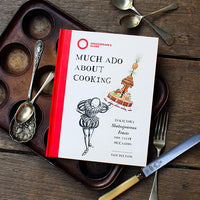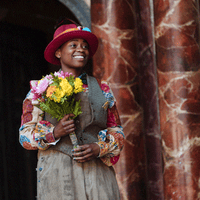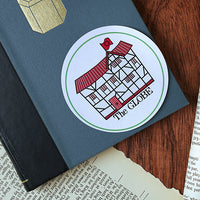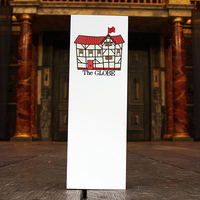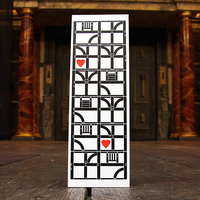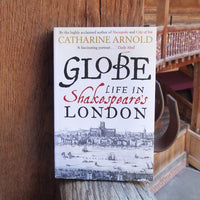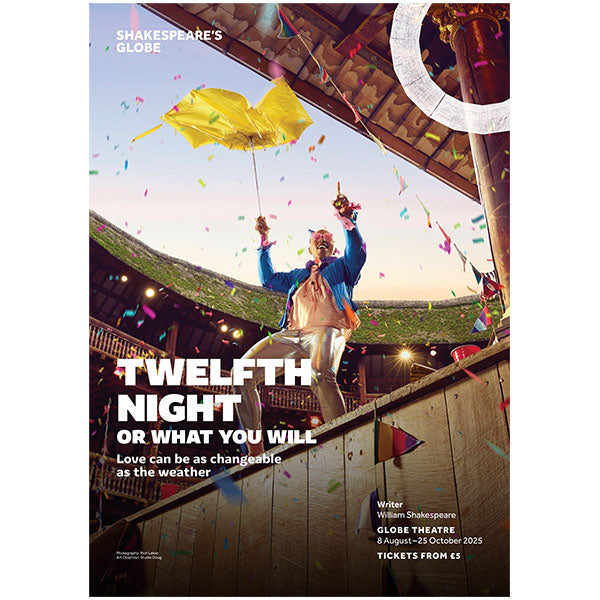
This summer, the Globe stage will see productions of two of Shakespeare’s best-known comedies, The Merry Wives of Windsor and Twelfth Night. Full of witty banter, convoluted plots, romantic confusion, and ultimately, joy, these plays reveal a lighter side of the Bard’s genius.
The Art of Mistaken Identity
One of Shakespeare’s favourite comedic devices is mistaken identity—a tool he wields to create confusion, tension, and, of course, laughter. In Twelfth Night, Viola disguises herself as a boy, Cesario. After surviving a shipwreck in which she believes her twin brother, Sebastian, has died, Viola finds herself alone in the unfamiliar land of Illyria. She needs to protect herself and find a way to survive. Since it would have been difficult and dangerous for a young woman to travel and work alone in that era, she disguises herself as a young man named Cesario. Disguising herself as a boy allows Viola to become Duke Orsino’s trusted servant and the conduit for the duke’s love letters to Lady Olivia. The duke then falls for Cesario (not realising “he” is Viola) and Lady Olivia falls for the dashing young man as well, while Viola secretly loves Orsino. This sets off a chain of mistaken identities and romantic confusion and a chaotic love triangle. Viola’s disguise becomes a clever narrative device that allows Shakespeare to explore love, loyalty, and the fluidity of identity—all while keeping the audience in stitches!
Similarly, in The Comedy of Errors, two sets of twins cause a domino effect of errors and hilarity as mistaken identities lead to wrongful beatings, arrests, and declarations of madness. The audience, always in on the joke, enjoys the increasing absurdity until the characters finally catch up and the truth is revealed.
Wit and Wordplay
The Merry Wives of Windsor is filled with wit, wordplay, puns and double entendres. The play revolves around the antics of Sir John Falstaff and the clever plotting of Mistress Ford and Mistress Page, who seek to outwit him. While Falstaff is full of ridiculous grandiosity with over-the-top metaphors and exaggeration, the women use sarcasm and irony to mock him without his realising. Mistress Quickly’s character is also rich with malapropisms—humorous misuses of words—that add absurdity and unintentional wit. The clever language reflects the play’s larger theme: brains over brawn. The witty wives triumph not by force, but through sharp tongues and sharper minds.
Another hallmark of Shakespearean comedy is the rapid-fire exchange of witty dialogue. His characters spar with words as deftly as any swordfight. Beatrice and Benedick in Much Ado About Nothing are prime examples. Their clever insults and flirtatious banter form the emotional and comedic core of the play. Their mutual stubbornness and verbal duels make their eventual romantic union both inevitable and deeply satisfying.
This kind of verbal comedy also appears in As You Like It, where Rosalind (another character in disguise) uses her sharp tongue and cleverness to guide the men around her toward self-realization and love, all while entertaining the audience with her wit.
Love, Chaos, and Resolution
Romantic entanglements are a staple of Shakespeare's comedies. Lovers pine, schemes are hatched, love potions are brewed (a magical concoction created from the juice of a flower called "love-in-idleness in A Midsummer Night’s Dream), and nothing goes according to plan—until, magically, everything does. “The course of true love never did run smooth”, but it’s always interesting. Shakespeare delights in turning courtship into a journey of transformation, where lovers must often learn, grow, or laugh at themselves. Shakespeare's assures us that love, no matter how messy and confusing, will find its way.
Happy Endings with a Purpose
While laughter and levity define these plays, Shakespeare’s comedies often touch on deeper themes: identity, gender roles, social expectations, and the nature of love. These stories don’t just end happily—they leave audiences with a sense of renewal and hope. In a Shakespearean comedy, balance is restored, forgiveness is granted, and even the most wayward characters are welcomed back into the fold.












